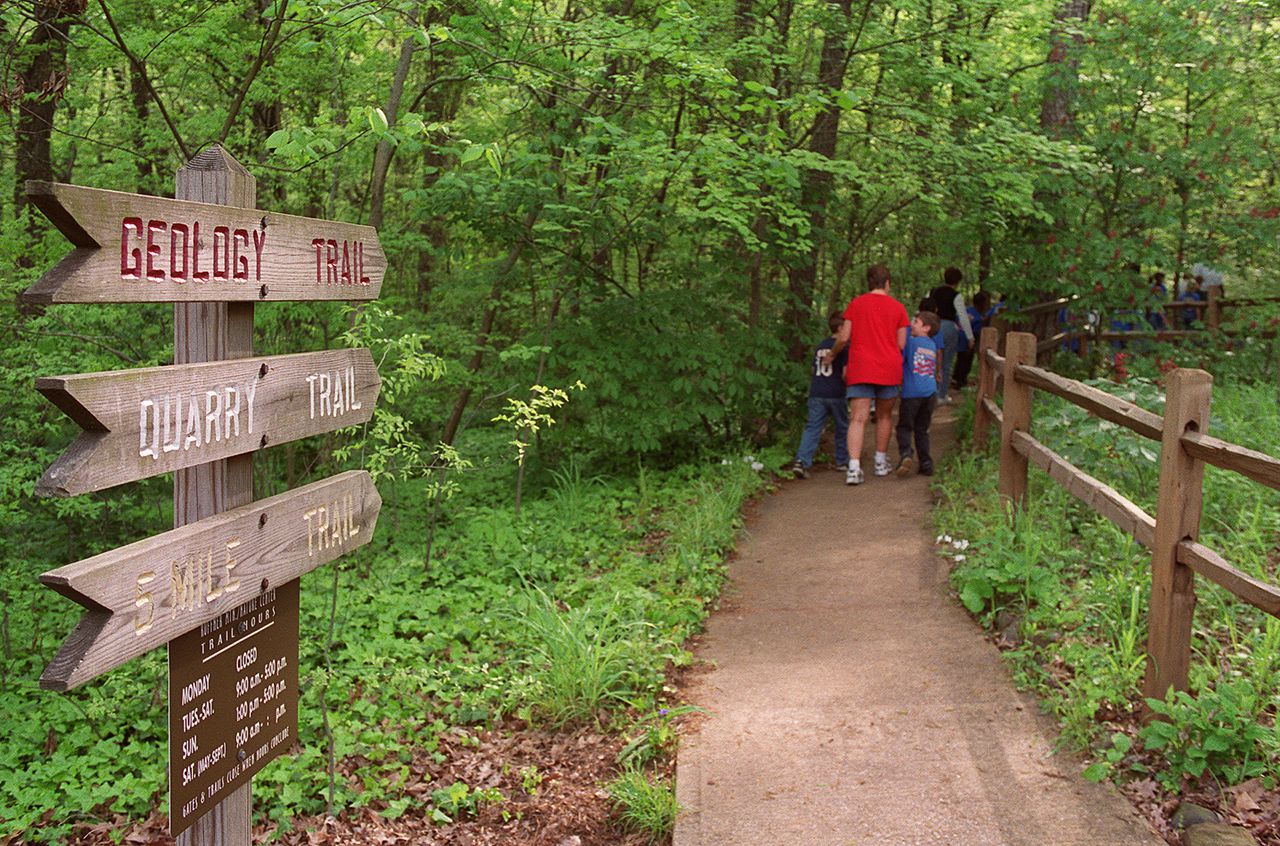Comeback Town: New partnership marks stunning victory for our parks
David Sher’s ComebackTown for a better metro Birmingham
Click here to sign up for newsletter.
Today’s guest columnist is Thomas Spencer.
This month, the Jefferson County Greenways Commission is launching a national search for a superintendent to lead the development of a system of large-acreage public parks, bringing together Red Mountain Park, Ruffner Mountain, and Turkey Creek Nature Preserve.
It’s a stunning turnaround moment for three well-loved but heretofore underfunded destinations. And it creates a world of possibilities for the future.
What a difference intergovernmental cooperation makes
In 2019, before my first meeting as a volunteer on the Red Mountain Park Commission, I was informed that the park was in danger of shutting down because it was running out of money.
In the face of the emergency, park leadership had to slash staff. Birmingham and Homewood helped stabilize the park, and the Jefferson County Legislative Delegation secured money from the state to help pay for the state employees managing the state-owned land.
It turned out Ruffner had navigated through a precarious financial situation as well, and Turkey Creek remained vulnerable due to the uncertainty around the fate of Birmingham-Southern College, a principal supporter. The leaders of the three parks – Ruffner’s Carlee Sanford, Red Mountain’s T.C. McLemore, and Turkey Creek’s Roald Hazelhoff – began meeting to devise a common solution, all the while managing short-staffed through the pandemic, a time when park visitation skyrocketed.
Red Mountain (1,500 acres straddling Red Mountain’s ridge west of I-65), Ruffner (1,040 acres on the ridge separating Irondale and Birmingham East of I-20), and Turkey Creek (655 acres centered on a Turkey Creek in Pinson) each operated independently, cobbling together support from adjacent cities, from members, and philanthropic donors.
All three parks are cornerstone historical sites, with evidence of early settlement and the iron-making and mining that birthed the Birmingham district. Between the three, they provide miles of hiking, biking, running, swimming, and fishing, plus nature education and historical interpretation. Nearly every weekend, their parking lots are filled-to-overflowing, each attracting around 100,000 visitors yearly.
In most urbanized counties in Alabama and major counties in the U.S., the county plays a role in creating and maintaining large-scale parks. These regional parks are increasingly recognized as must-have amenities: assets that make the communities healthier and more attractive. Most commonly, governmental funding supports basic operations and maintenance, while community and philanthropic support supplements by providing programming and capital improvements.
In Jefferson County, park building has been left to the county’s multitude of municipalities. When it came to these larger parks, which draw people from all over the region, the responsibility of caring for them fell to philanthropy and adjacent cites.
In 2022, park leaders presented a proposal for county support and appealed to the Jefferson County Commission to partner with the city and the state to support these large-acreage parks.
The Commission responded with a challenge: the county would invest $2 million in American Rescue Plan Act money in the venture if the parks could secure $1.6 million in matching funds, enough to support three years of maintenance and operations at the three existing parks.
The challenge was met. And then some: $3.95 million will upgrade maintenance, operation, and security over the next three years at the three parks. After the parks coalition, now renamed the Jefferson County Greenways Commission (JCGC), secured the match, the County increased its commitment, adding a $350,000 annual appropriation to its regular budget, a sign of its support for a long-term partnership.
Additional pledges have been made to the non-profit Ruffner Mountain Nature Coalition and Red Mountain Park Foundation, allowing them to revive programming and make capital improvement projects at the parks. The public collaboration through the JCGC will be mirrored on the nonprofit side, as the Ruffner Mountain Nature Coalition and the Red Mountain Park Foundation share resources, expertise, and energy, eliminating duplication and competition.
This fledgling system has been made possible through the cooperation and co-investment by the Jefferson County Commission, the Jefferson County Legislative Delegation, the cities of Birmingham, Irondale, Homewood, and Pinson, the Jefferson County Health Department, the Community Foundation of Greater Birmingham, EBSCO, the Alabama Power Foundation, The Goodrich Foundation, and other philanthropic organizations.
More than $3.95 million has been pledged over the next three years to launch the system, with additional funding also pledged to re-energize the nonprofits that have managed the parks.
On the public side, the superintendent, under the oversight of the Greenways Commission, will have the opportunity to build a cost-efficient, joint system for caring for and improving the parks. In the long run, the system will also provide a sustainable framework for adding new regional parks and enhancing outdoor recreational attractions, a mechanism other counties have but Jefferson County has lacked.
These free and open-to-the-public parks aren’t city parks; they aren’t state parks, though much of the land is owned by the State. They’ve been managed through makeshift arrangements with 501c-3 nonprofits and have, to a large extent, operated on donated dollars.
With the new system, Jefferson County can complement the vision and investment Shelby County has shown in developing and promoting its outdoor recreational offerings. Working with Forever Wild, Shelby County established Cahaba River Park near Helena. On the eastern end, Shelby County has added Double Oak Park as well as benefiting from the expansion of Oak Mountain State Park.
It’s exciting to think of the possibilities cooperation provides.
Thomas Spencer is a senior research associate at the Public Affairs Research Council of Alabama and serves on the Jefferson County Greenways Commission. He is also the author of Five Star Trails: Birmingham, a guidebook to hiking in Central Alabama.
David Sher is the founder and publisher of ComebackTown. He’s past Chairman of the Birmingham Regional Chamber of Commerce (BBA), Operation New Birmingham (REV Birmingham), and the City Action Partnership (CAP).
